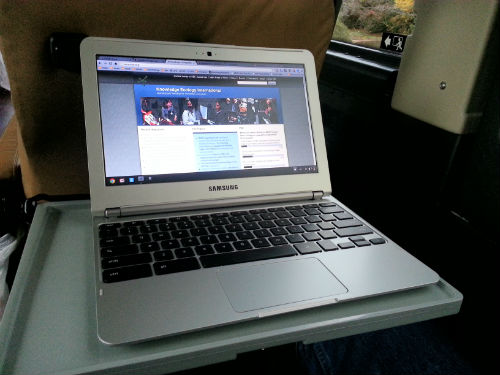WIPO Extraordinary General Assembly: Statement of Development Agenda Group in support of Treaty for the Blind
The following intervention was delivered by Brazil on behalf of the Development Agenda Group at the Forty-Second (22nd Extraordinary) Session of the WIPO General Assembly on 17 December 2012.
 Yesterday I received a Samsung laptop computer running Google’s Chrome OS. This is the new $249 Chromebook with an SSD drive, 2 gigs of RAM, an 11.6 inch 1366 x 768 pixels screen, and the 1.7 GHz Exynos 5200 processor. The laptop weights 2.4 pounds and has a nice usable keyboard and a well implemented trackpad. There is also the option of a model with 2 years of 3G (limited) data from Verizon, for just $329.
Yesterday I received a Samsung laptop computer running Google’s Chrome OS. This is the new $249 Chromebook with an SSD drive, 2 gigs of RAM, an 11.6 inch 1366 x 768 pixels screen, and the 1.7 GHz Exynos 5200 processor. The laptop weights 2.4 pounds and has a nice usable keyboard and a well implemented trackpad. There is also the option of a model with 2 years of 3G (limited) data from Verizon, for just $329. 